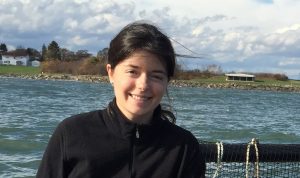Search results for: Hawaiian Airlines Customer Service 800-299-7264 Online Flight Reservations
Coastal Impacts Newsletter – Dec. 2020
Coastal Impacts Woods Hole Sea Grant Newsletter DECEMBER 2020 CONTENTS Letter from the Director WHSG Continues DEI Efforts with Recording of Virtual Seminar on Systematic Racism in America Women in STEM Panel Discussion, Part of Girls In Science Program, Available For Viewing Online New Extension Bulletin Available On Use of Discarded Christmas Trees New…
Read MoreClam Tents: A New Approach to Soft-Shell Clam Culture and Management
Clam Tents: A New Approach to Soft-Shell Clam Culture and Management Helpful to educators and students Leavitt, D.F. Marine Extension Bulletin, 4 pp., 1998 WHOI-G-98-006 Also available online: click here
Read MoreSurf Clams
Surf Clams In the marketplace, one-year-old surf clams are known as “New England Butter Clams” – a relatively new product on the market. Farming New England Butter Clams means they can be harvested at a size in which they are tender, buttery and sweet – as well as easy and versatile to prepare. This results…
Read MoreCytochrome P4501A Induction and Porphyrin Accumulation in PLHC-1 Fish Cells Exposed to Sediment and Oil Shale Extracts
Cytochrome P4501A Induction and Porphyrin Accumulation in PLHC-1 Fish Cells Exposed to Sediment and Oil Shale Extracts Huuskonen, S.E., A. Tuvikene, M. Trapido, K. Fent, and M.E. Hahn Arch. Environ. Contam. Toxicol., Vol. 138, pp. 59-69, 2000 WHOI-R-00-003
Read MoreTeacher Workshop: October, 29 2019-Coastal Wetlands
Carbon Cycling in Coastal Wetlands Presenters: Dr. Anne Giblin, Marine Biological Laboratory (MBL) Senior Scientist – Rising Seas and the Fate of Coastal Salt Marshes Dr. Meagan Eagle Gonneea, U.S. Geological Survey Research Scientist – Blue Carbon in Our Backyard: Coastal Wetlands, Climate, Management, and Markets Date: October 2019 Lesson Plans…
Read MoreTeacher Workshop: July 15, 2022- Sea Level Rise
The Perfect Storm: Exploring how sea level rise and storms intersect Presenters: Greg Berman, Coastal Processes Specialist, Woods Hole Sea Grant and Cape Cod Cooperative Extension – The Science of Sea Level Rise and Storms, Presentation Slides Shannon Hulst, Floodplain Specialist, Woods Hole Sea Grant and Cape Cod Cooperative Extension – Applying the Science:…
Read MoreKnauss Profile: Amalia Aruda Almada
Amalia Aruda Almada has long had an interest in the connection between ocean science and public health. As an undergraduate at Georgetown University, Almada had read about the oceanographer and microbiologist Rita Colwell, who was the first scientist to show that freshwater copepods—barely visible …
Read MorePattern of Inheritance of Microsatellite Loci in the Squid Loligo pealed (Mollusca: Cephalopoda)
Pattern of Inheritance of Microsatellite Loci in the Squid Loligo pealed (Mollusca: Cephalopoda) Maxwell, M.R., K.M. Buresch, and R.T. Hanlon Marine Biotechnology, Vol. 2, pp. 517-521, 2000 WHOI-R-00-011
Read More2002-2004 Projects
Developmental Effects of Contaminants on Salinity Preference and Seawater Survival for Atlantic Salmon: Integrating Physiology and Behavior Stephen D. McCormick, Darren T. Lerner, and Emily Monosson, University of Massachusetts, Amherst Over the last 20 years populations of Atlantic salmon (Salmo salar) in northern New England have decreased ten-fold, resulting in their recent listing as an…
Read MoreWHOI-R-93-006 Anderson, D.M. An Immunof
WHOI-R-93-006 Anderson, D.M. An Immunof
Read More
